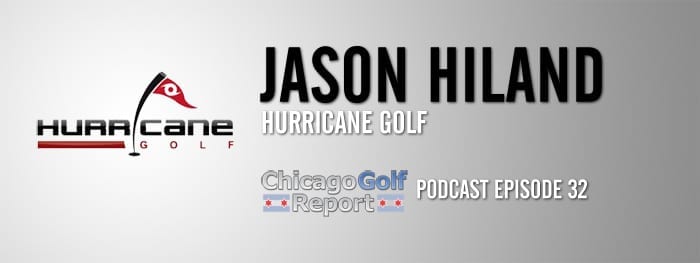
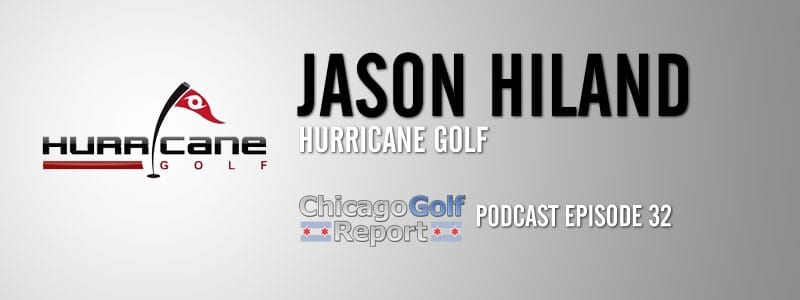 Our guest this episode is the CEO of Dekalb-based Hurricane Golf, Jason Hiland. Jason is a 20+ year veteran of the golf business who attended Waubonsee Community College and went on to build two highly successful golf companies – Hurricane Golf and Diamond Tour Golf.
Our guest this episode is the CEO of Dekalb-based Hurricane Golf, Jason Hiland. Jason is a 20+ year veteran of the golf business who attended Waubonsee Community College and went on to build two highly successful golf companies – Hurricane Golf and Diamond Tour Golf.
Interviewer: Walter Lis. Running Time: 23:01
CGR: So why don’t we start at the beginning, can you explain how you got into the golf business?
JH: Yeah, I was starting community college at Waubonsee Community College in Sugar Grove and I was working in a retail store, or I got a job at a retail store I should say, which was in Naperville. And I had to thank my mom for that. She actually sent in an application and she came in and talked to the owners and vouched for me so they gave me a job. I was working the weekends and nights, and playing college golf at Waubonsee Community College, and then that was my first job in the golf business when I was 18 so that’s how it started.
CGR: Then you played college golf, at what point did you decide that this was something that I want to make a bigger part of my life or how did it evolve from there?
JH: My playing career was mediocre. You know I may have been intentionally good enough to be a club pro, but nothing more than that so I realized my talent level wasn’t going to take me very far in actually playing golf. So I was a business major at Waubonsee Community College. Then when I got my degree from Oshkosh, I gravitated towards business so then I kind of tried to really think of how could I take my education I was working on, and my business degree, and turn it into a career in golf. So then it switched when I realized that the talent really wasn’t there and I wanted to be around it so I had to come up with something more reasonable to make a living doing it.
CGR: What was that next step? What got you to the connection of actually being in the golf business?
JH: Yeah, so then Mike Tait who is the owner of SMT Golf Outings, and SMT Golf which was a golf component company at the time. He was a golf pro at the time, so he just started in the golf industry and at the same retail store that I was at when I was there in the off-season of him being a golf professional. So, he would come in on the weekends when he was off, and I got to be friends with Mike and he sort of mentored me. And then he hired me away from the first retail shop when SMT Golf really started to take off. It was actually called Mirage Golf back then, but it was a precursor of the SMT business.
So then I worked with Mike in the golf component business in the summer time and when I was home, or whenever I could and that’s when I really saw that this could turn into a career.
CGR: So the Mirage Company that you refer was like a clone club manufacturer?
JH: Yeah, it sold shafts and grips and Mike had some of his own designs, and stuff like that. So it wasn’t 100% clones. Mike also had some ideas on designs and he would bring in his own components. But it was a classic component company, and about half the orders that we would ship were built. We would take those parts and build them to the customer’s specifications, or we would just send the parts to people along with shafts and grips and we were just distributors for those companies as well, so it was the sort of classic golf component custom building model.
CGR: Then what led you to believe from that experience with Mike and learning the golf component business, club manufacturing business, or club assembling business, to wanting to take the next step to create your own business and put yourself out there?
JH: I mean I have to give Mike a lot of credit for this, because looking back at it now I was 18 years old and really helping him with the business. So, I was dealing with clients, we were looking at product development. I mean Mike could leave and I could run it, he trusted me enough to do it.
So you know I could see the Internet was coming out at that time, and at college enlisted in a couple of computer science majors. We saw the first Internet connection in 1993, and graduated from college in 1995, so there was this convergence of technology coming out along with the background and I figured that you could reach people more easily than ever. I remember in 92, 93, 94 we were getting orders in on the paper fax machines with you know, the heat treated paper that would curl up and just telephone them and I mean that was it. But you could see how that business model could be converted to the Internet.
So it also that I had enough confidence that I could do it from the history of working with Mike. The economy was doing really well at that period of time, and then this convergence on this new technology coming out sort of made me say, well if I’m going to do it, the stars are sort of aligning to go ahead and jump in the deep end.
CGR: What was the connection, or what ultimately, how did you get to where you are at now, what was the first step for you to what you have at Hurricane Golf?
JH: Well I mean the first step was graduating from college, and saying I’m not going to follow the normal path and get a regular 9-to-5 corporate job. It was saying right out of the gate, I’m going to start my own company which the first one was Diamond Tour Golf, and it was sure classic golf component company. There were clone type golf clubs, our own designs, you know distributing grips from all the major manufacturers and distributing all the shafts, which the business 20 years later is still open, custom building clubs and sending out components.
So the first step to kind of getting to where we are now was saying I’m just going to do this at 21 years old, 22 years old at the time of you know, I’m not going to follow the normal path. I’m going to jump in at the deep end at this point and give it a whirl and see if I could make it work, but I was confident that I could do it. Sort of just one step in front of the other and you know hiring as we grew, hiring really smart people and almost looking back at the mentoring Mike did with me to get a really good group around you and let them sort of you know do their thing and to help the organization out on its way and you kind of find out what you’re good at and what you’re not good at and then you surround yourself with people who make up your shortcomings. But the first step was essentially, I’m just going to do it and saying I’m going to start this thing.
CGR: Can you talk a little bit then how you started Diamond Tour Golf and can you talk a little bit how Hurricane Golf came out of that?
JH: Yes, so Diamond Tour Golf started in the December 1995, and then in early 2008 Diamond Tour had been going 12 or 13 years. But we saw the opportunity to start another company called Hurricane Golf, which was actually going to be buying in large volumes from the major companies everybody’s heard of – Callaway, Nike, TaylorMade, Adams etc.
We knew the Internet business quite well at that point. We had the distribution center set up for Diamond Tour. We had space we could keep using, and we thought with the economy and where it’s going, value you know companies like TJ Maxx was going to do well during this period of time. And financially we were in good shape so we could kind of expand out to another business.
So we thought that we could use our expertise from our buying power to kind of get some really good deals, and pass those onto the client. So we were kind of ready for company two, Diamond Tour. We’ve been an established business, and mature business at that point, and we kind of saw this opportunity with what was going on in the economy. But it sort of seemed to make sense for the group of people we had, and where sort of the economy was going we could kind of use our buying power and pass good value to the clients. That was the basis at the start of it.
CGR: So now knowing what you know and having Hurricane around this long and having grown this business like you’ve been able to do and see its success, what do you think has made Hurricane so successful? What do you think that’s helped you take that initial idea and then continue to build on it, in addition to like you said the buying power, what else is there that you think Hurricane does uniquely that makes it so well respected?
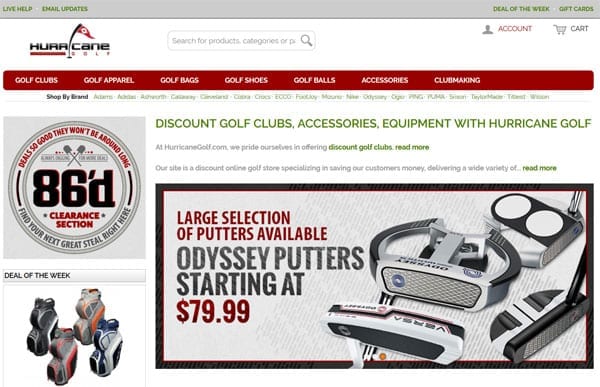 JH: I think its first off it’s having a team of people around us and still around us to be able to start that second business. We learned a lot from Diamond Tour. So we could kind of take that 10 years we’d all been together and starting that second business was actually easier the second go around because we were a little older and more mature and everyone knew their role and what they were going to do. So kind of having that group to really start it with at Diamond Tour made that transition to the second company easier.
JH: I think its first off it’s having a team of people around us and still around us to be able to start that second business. We learned a lot from Diamond Tour. So we could kind of take that 10 years we’d all been together and starting that second business was actually easier the second go around because we were a little older and more mature and everyone knew their role and what they were going to do. So kind of having that group to really start it with at Diamond Tour made that transition to the second company easier.
Secondly, you know I’m a golf guy at heart so I mean I still love anything with the golf business and I love both companies. So I still have that passion. Ultimately when that guy opens the box from us I want that customer to be happy with the deal, satisfied with it, have a great experience when they go to our website, that its simple, and easy to use, and they trust us and know the values going to be there.
It’s just that whole factor of wanting the customer to have a great experience, we kind of say, Walmart pricing and be the best price we can give to them, but Nordstrom service. So you know, you call our 800 number, there’s someone there. You don’t have to actually hit 17 buttons to get to a human being. We want to make sure that that customer has a great experience, so that’s still sort of the drive behind it. And it’s just one step at a time and just kind of kept growing and growing and it’s still growing. But that basis of why we do what we do has not changed and making sure that customer has a great experience and they’re happy when they get products from us.
CGR: You have a storefront in downtown DeKalb, how many people are working at that location?
JH: In the whole building on a day-to-day level maybe have 15 to 18 people. We also you know have some staff members who don’t live in Illinois, who are on the internet side of the stuff. But there’s normally say 15 to 16 people in and out on a daily basis. And yeah, we have a little retail store that’s a small small portion of our business, but people can still come in and they can put their hands on the products in both companies.
They can come and look at the stuff, we can custom fit them, we can change their grips. Because all the inventory is connected to that retail store, the retail store is a sort of little portal to all the inventory that we have. And it’s fun. The customers get to come in and see us, and even although it’s an Internet based business, if anyone is ever in DeKalb then we’re more than happy to help them out with anything or feel free to see the products that we have.
CGR: I think that’s a really unique component of your business to have that storefront, like you said this is a company that does very well online and you get a huge percentage of your sales online, but yet you have a storefront. Why do you keep it going, is it just to have that connection with the customers or is there some other reason to have a storefront like that?
JH: Yeah I mean that’s it. It’s the ability if anyone wants to come see us and set up an appointment to get fit and it kind of falls back to that really taking care of the customer that we just don’t want to be you know just a name on the Internet. And if you came by the building and you would just knock on the door and you just can’t come in. We just don’t want to be able that service you like a normal retail customer if you’re local, but hopefully we’ll give you better deals per se because of the volume of what we buy. So it’s kind of old school meets new school would be the best way I could describe it, but we’ll always have that open.
CGR: Now you mention this has been your life, this has been your career basically since you started. You started a golf business, you stayed in it, you created your own company and like you say you’re still a golf guy at heart. What drives you? What’s the next thing that you’re looking to accomplish with your business or with something else within the golf business?
JH: Yeah, I mean we have a concept now for potentially a third company in 2017 of being very boutique-ish, very crafty, very customized clubs but done more in a factory direct model. Our own designs, working with some different factories and some different guys helping us design some stuff. So there is a third one out there. I don’t want to give too many details away yet but that’s sort of the next direction we’re going.
And yeah, it’s just fun still, like I tell people I’ve never had a real job yet. I mean I still get to work and my favorite hobby which is golf. So there’s always sort of the next thing out there, something else to keep it going. But I still love it as much as I did from 20 years ago. I still love the people I work with and what I get to do.
Podcast: Play in new window | Download
Subscribe: RSS




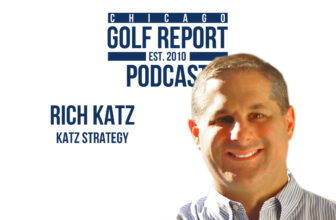

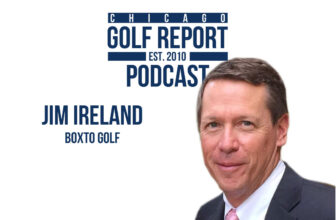

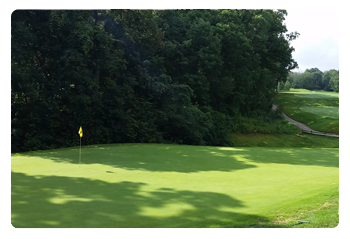 Find a Golf Course
Find a Golf Course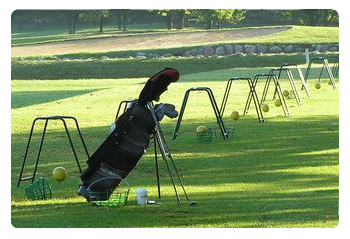 Find a Driving Range
Find a Driving Range Find a Topgolf
Find a Topgolf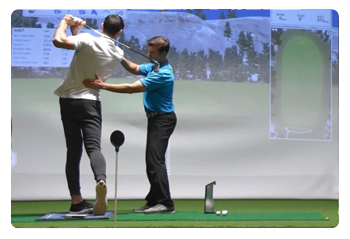 Find a Golf Instructor
Find a Golf Instructor